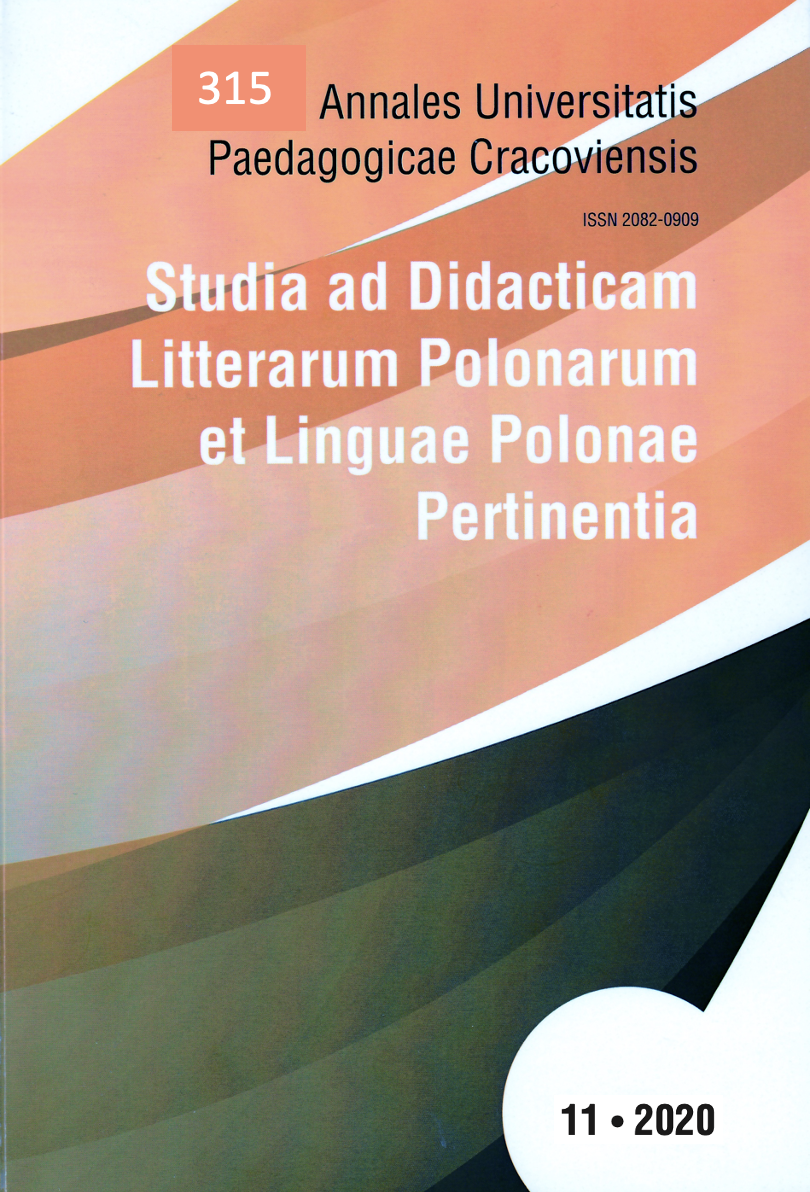Abstract
Although abstract nouns are introduced as a grammatical category in Serbian elementary schools at the beginning of the 5th grade, their status within the system is not as stable as it would appear at first. After analyzing the criteria for defining abstract words and concepts used in basic cognitive sciences - in linguistics, philosophy, and psychology - a conclusion emerges that these criteria are inadequate, and that the concrete: abstract relation it is not, as is often considered, binary. This further leads to recommendations
References
Barsalou L.W., Dutriaux L., Scheepers C., Moving Beyond the Distinction Between Concrete and Abstract Concepts, “Philosophical Transactions of The Royal Society B Biological Sciences” 2018, Vol. 373, Issue 1752, 2017.0144, s. 1-11.
Borghi A.M., Binkofski F., Castelfranchi C., Cimatti F., Scorolli C., Tummolini L., The Chal- lenge of Abstract Concepts, “Psychological Bulletin” 2017, Vol. 143, 3, s. 263-292.
Brysbaert M., Warriner A.B., Kuperman V., Concreteness ratings for 40 thousand generaly known English word lemmas, “Behavior Research Methods” 2014, Vol. 46, Issue 3, s. 904-911.
Caramelli N., Setti A., Maurizzi D.D., Concrete and Abstract Concepts in School Age Children, “Psychology of Language and Communication” 2004, Vol. 8, No. 2, s. 19-34.
Hoffman P., The meaning of ‘life’ and other abstract words: Insights from neuropsychology, “Journal of Neuropsychology” 2016, No. 10, s. 317-343.
Hurford J.R., Grammar: A Student’s Guide, Cambridge 1994.
Ivanič R., Nouns in search of a context: A study of nouns with both open- and closed-system characteristics, “International Review of Applied Linguistics in Language Teaching (IRAL)” 1991, Vol. 29, Issue 2, s. 93-114.
Lompar V., Vrste reči i gramatička praksa (od Vuka do danas), Beograd 2016.
Medin D.L., Lynch E.B., Solomon K.O., Are There Kinds of Concepts?, “Annual Review of Psychology” 2000, No. 51, s. 121-147.
Pecher D., Curb Your Embodiment, [in:] Abstract Concepts: Structure, Processing and Modeling, eds. M. Bolognesi, G. Steen, “Topics in Cognitive Science” 2017, s. 1-17. Rosen G., Abstract Objects, [in:] Stanford Encyclopedia of Philosophy, first published 2001, plato.stanford.edu/entries/abstract-objects [access: 11.04.2018].
Stanojčić Ž., Popović Lj., Gramatika srpskog jezika za gimnazije i srednje škole, Beograd 2008.
Theijssen D., Halteren H. van, Boves L., Oostdij N., On the difficulty of making concrete- ness concrete, “Computational Linguistics in the Netherlands Journal” 2011, No. 1, s. 61-77.

